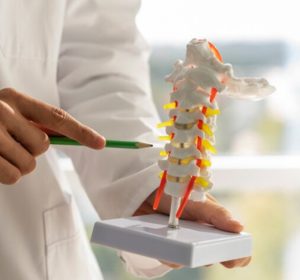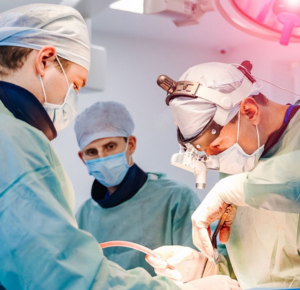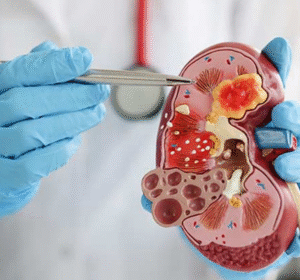1. Introduction to Menopause Joint Pain
Menopause can bring about various symptoms, including joint pain and stiffness. Many women seek natural remedies to manage these symptoms and improve their quality of life during this transitional phase.
2. Understanding Menopause Joint Pain
Joint pain during menopause is often attributed to hormonal changes, specifically a decrease in estrogen levels. This hormonal shift can lead to inflammation and changes in joint function, resulting in discomfort.
3. Incorporating Omega-3 Fatty Acids
Omega-3 fatty acids, found in fish oil, flaxseeds, and walnuts, have anti-inflammatory properties that can help reduce joint pain and stiffness associated with menopause. Adding these foods to your diet may provide relief.
4. Turmeric and Curcumin Supplements
Curcumin, the active compound in turmeric, has powerful anti-inflammatory effects. Taking turmeric or curcumin supplements may help alleviate menopause-related joint pain and improve overall joint health.
5. Ginger Tea for Pain Relief
Ginger contains compounds with natural anti-inflammatory properties. Drinking ginger tea regularly can help reduce inflammation and ease joint pain associated with menopause. Adding honey or lemon can enhance the flavor.
6. Heat Therapy with Warm Compresses
Applying warm compresses or heating pads to affected joints can help relax muscles, improve circulation, and alleviate menopause-related joint pain and stiffness. This simple and effective remedy can provide immediate relief.
7. Epsom Salt Baths for Relaxation
Soaking in a warm bath with Epsom salt can soothe sore muscles and joints, providing relief from menopause-related joint pain. Epsom salt contains magnesium, which can be absorbed through the skin and promote relaxation.
8. Acupuncture for Pain Management
Acupuncture involves the insertion of thin needles into specific points on the body to stimulate energy flow and promote healing. Many women find acupuncture helpful for relieving menopause-related joint pain and restoring balance.
9. Regular Exercise for Joint Health
Engaging in regular low-impact exercises like walking, swimming, or yoga can help strengthen muscles, improve flexibility, and reduce menopause-related joint pain. It’s essential to choose activities that are gentle on the joints.
10. Tai Chi for Balance and Flexibility
Tai Chi is a gentle form of exercise that incorporates slow, flowing movements and deep breathing. Practicing Tai Chi regularly can help improve balance, flexibility, and joint mobility, making it beneficial for managing menopause-related joint pain.
11. Maintaining a Healthy Weight
Excess weight can put added strain on the joints, exacerbating menopause-related joint pain. Maintaining a healthy weight through a balanced diet and regular exercise can help reduce stress on the joints and alleviate discomfort.
12. Stay Hydrated for Joint Health
Drinking an adequate amount of water throughout the day is essential for maintaining joint health and reducing menopause-related joint pain. Proper hydration helps lubricate the joints and cushion them during movement.
13. Incorporating Anti-Inflammatory Foods
Foods rich in anti-inflammatory nutrients, such as fruits, vegetables, whole grains, nuts, and seeds, can help reduce inflammation and alleviate menopause-related joint pain. Aim to include a variety of these foods in your diet daily.
14. Calcium and Vitamin D Supplements
Calcium and vitamin D are crucial for bone health and joint function. Taking supplements or consuming foods rich in these nutrients, such as dairy products, leafy greens, and fortified foods, can support joint health during menopause.
15. Magnesium-Rich Foods
Magnesium plays a role in muscle and nerve function and may help alleviate menopause-related joint pain. Foods high in magnesium include nuts, seeds, legumes, whole grains, and leafy greens.
16. Herbal Remedies such as Devil’s Claw
Devil’s claw is a traditional herbal remedy known for its anti-inflammatory properties. Taking devil’s claw supplements may help reduce menopause-related joint pain and improve mobility.
17. Evening Primrose Oil for Hormonal Balance
Evening primrose oil contains gamma-linolenic acid (GLA), a type of omega-6 fatty acid with anti-inflammatory effects. Taking evening primrose oil supplements may help balance hormones and alleviate menopause-related joint pain.
18. Green Tea for Antioxidant Support
Green tea is rich in antioxidants, which can help reduce inflammation and protect joint health during menopause. Drinking green tea regularly may provide additional support for managing joint pain naturally.
19. Mind-Body Techniques for Pain Management
Practicing relaxation techniques such as deep breathing, meditation, or guided imagery can help reduce stress, muscle tension, and menopause-related joint pain. Incorporating these techniques into your daily routine can promote overall well-being.
20. Massage Therapy for Pain Relief
Massage therapy can help relax muscles, improve circulation, and reduce menopause-related joint pain and stiffness. Whether through professional massage sessions or self-massage techniques, regular massage can provide relief.
21. CBD Oil for Pain Management
CBD oil, derived from the cannabis plant, has been shown to have anti-inflammatory and pain-relieving properties. Using CBD oil topically or orally may help alleviate menopause-related joint pain without the psychoactive effects of THC.
22. Capsaicin Cream for Joint Pain Relief
Capsaicin, the active component in chili peppers, has been found to reduce pain by depleting substance P, a neurotransmitter that transmits pain signals. Applying capsaicin cream topically to affected joints may provide relief from menopause-related joint pain.
23. Mindfulness-Based Stress Reduction
Mindfulness-based stress reduction (MBSR) programs teach techniques for managing stress, pain, and other symptoms through mindfulness meditation and yoga. Participating in an MBSR program may help reduce menopause-related joint pain and improve overall well-being.
24. Consultation with a Healthcare Provider
Before starting any new supplement or treatment regimen, it’s essential to consult with a healthcare provider, especially if you have underlying health conditions or are taking medications. They can provide personalized recommendations based on your individual needs and medical history.
25. Lifestyle Modifications for Joint Health
In addition to natural remedies, adopting healthy lifestyle habits such as getting adequate sleep, managing stress, and avoiding smoking can help support joint health and reduce menopause-related joint pain over time.






